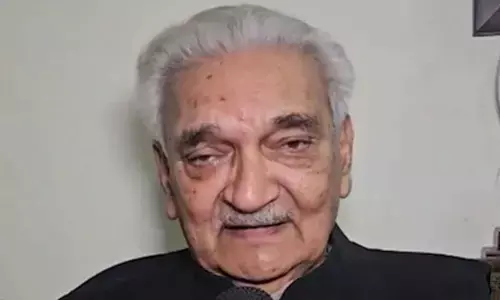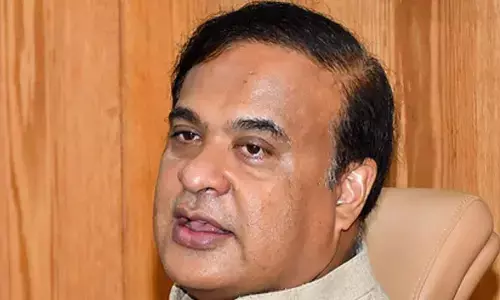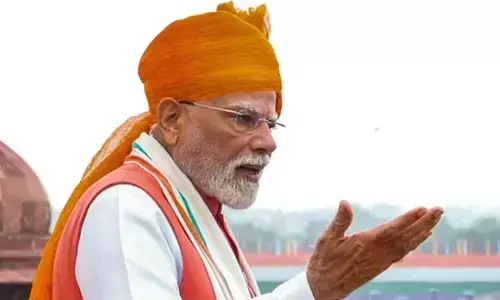MyVoice: Views of our readers - 02 Jan

MyVoice: Views of our readers - 02 Jan
2020: Year of hope
The new year has brought the blessings of relatives and greetings from friends. But this new year doesn't just mean a lot to the nation, but also to the world. The year 2020 will bring the world-cup and Olympics and many other sports tournaments.
For the political inclinations, it will hold the Delhi elections in the recent future. Not only the real world, but even Bollywood has promised a lot of inspirational movies in the coming months.
For such an important year, such enthusiasm is necessary to welcome the beginning of yet another 365 days of happenings. We sit tight to fight for all the opportunities, welcome every ally, get influenced by every positivity and progress further ahead.
Anushka Dabhade, Ujjain
Joint efforts needed to curb greenhouse gas emissions
The disastrous fires that have been sweeping through the southern half of Australia serve as a warning to all countries. These fires raise wider issues of climate change, global warming and emission of greenhouse gases.
The fires have caused widespread destruction, great loss of lives and death of millions of animals. It is evident that global warming and greenhouse gas emissions have led Australia to an environmental catastrophe. Many countries are faced with the consequences of global warming and climate change.
On the other hand, many world leaders refuse to acknowledge the truth. Even Australian Prime Minister Scott Morrison has firmly denied that there is no link between the bushfires and greenhouse gases. World leaders are divided over how to fight global warming.
There is an urgent need for sustained and joint efforts from the side of world leaders, especially from advanced economies to curb greenhouse gas emissions and lessen the impact of global warming.
Venu G S, Kollam
Gagged media and growing atrocities
The year that went by was full of turmoil throughout the country. And the worst hit were journalists who raised their voices against the atrocities of governments. There were 36 attacks on journalists in India in 2019 up to the middle of December according to a report just out, and the role of police in obstructing reporters grew.
A year that began with pellets being shot at photojournalists in Shopian in January ended with the police reportedly hitting a woman journalist, who was covering the Jamia Millia Islamia campus protests, with a baton, pulling her hair and breaking her phone. Amazingly, the State also threatened the media with defamation.
In Andhra Pradesh, the Jagan Mohan Reddy government took the unprecedented decision of empowering its secretaries to initiate legal proceedings against media outlets which publish "baseless and defamatory" news. It is hard for the media to function, let alone feel empowered, when access to communication technologies is cut off.
Internet shutdowns were so widespread that it was reported in December that the People's Daily in China had cited India as an example to justify internet shutdowns. They peaked countrywide with the December protests against the CAA. One newspaper mapped the shutdowns across the country between December 11 to 20 — 24 districts in Uttar Pradesh, 11 in West Bengal, 10 in Assam and so on.
Kashmir has remained shut down for five months, with many journalists losing their source of livelihood. The New Year has nothing better to offer it looks like.
Sabitha I, Hyderabad
Save the farming sector
At a time when agriculture sector in the country is staring at acute crisis, it is imperative for the Centre to find ways and means to save millions of farmers across the nation. If there is one market intervention that ensures price discovery, it is the MSP, if it is delivered properly.
In a country where only six per cent farmers get the benefit of MSP, markets have failed miserably to provide a better price to 94 per cent of the remaining farmers and thereby help in price discovery. The introduction of e-NAMs (electronic national agricultural markets), too, has failed to assure a higher price to farmers.
Although former Finance Minister Arun Jaitley had acknowledged that e-NAMs are the first step towards setting up spot markets, what is not being answered is why in the US agriculture continues to slide into deep crisis year after year despite having the world's largest commodity exchange in Chicago, and another in New York?
Strengthening the procurement system is, therefore, the answer. Instead of ascribing a quota system for limiting wheat and paddy procurement, an effective procurement system needs to be evolved for alternate crops.
Farmers do realise the need to diversify, but in the absence of an assured price and procurement, are not willing to make the shift. After all, volatility of markets is what hits farmers the most.
Raghuram Reddy, Khammam














